Dear Pooja,
My father, 72, had an open heart surgery a few weeks ago and is better now. He did not have a heart attack, and he does not have diabetes nor high BP. What are the kinds of foods he can have now to gain back his strength? He is slim and had been otherwise fit always and is a vegetarian.Your father can most easily be the best example to what I say over and over again ‘You are what you eat’ being a wise eater thus the absence of any excess weight baggage and like you said fit always’ and therefore is metabolic disease free even now. The reason for an open-heart surgery could very well be age related plague deposition as the most noticeable characteristic of vascular ageing is the change in the mechanical and structural properties of the vascular wall. Now to help him regain his strength first focus should be on better quality proteins – being vegetarian please ensure you are giving him one-two servings of dal/pulses/sprouts daily – low fat milk and its products and if possible introduce some quinoa and soyabean weekly. Vitamins are another point to emphasis thus ensuring no micro nutrient deficiency leading to delayed healing. Two-three servings of vegetables plus an additional raw veggie juice daily (minimum three colours of vegs) along with two-three servings of fruit daily should do the trick. Ample hydration, adequate sleep and slow walks for about 15-20 minutes a day should help in better recoup and recovery. Check with your doctor or nutritionist for basic multi vitamins and some B12 as well as omega 3-6-9 supplements since he is vegetarian. Always keep the faith in the magic and the powers of healthy frequent eating and may he have a long healthy life ahead.
Dear Pooja,
My son is 14 yrs, height 5’3″ but weight is 84 kg. He started a crash diet . I want a healthy diet which can help him reduce weight but with no loss of essential elements .
His daily routine is wake up at 6:30 am and go to school at 7:30am . In school two break at 9:30am and 12:00pm respectively. After that he comes back at 3:15 and goes to the gym at 4:30 pm for a hour. Then comes home to eat some snacks. At night he eat dinner at 8:30 pm. We are pure vegetarian. Please help meIn today’s children awareness about the weight and their body size is setting in earlier then before and especially once they in their teens they are conscious of the way they look particularly in comparison to peers. Teaching them the correct relationship to food at this point (and many a times even much earlier) is most essential else they fall in to the trap of equating food to calories and thus fearing it always. Giving up food or starving then seems to be there only route to losing the excess weight they are carrying. Teaching them the importance of food through its food group system and the significance and function of each is the prime crux. Carbohydrates (which most fear – leave alone just kids) are the prime source of fuel – daily activities of running, studying, playing even just sitting requires energy that comes from carbs and this vital food group is usually the first to be omitted. Lack of adequate carbs leads to growth retardation, poor immunity, low stamina, crankiness and mood swings among a hundred other side effects. Importance of proteins for growth, height increment, wear-n-tear and repair is most crucial. I cant even stress enough on the daily inclusion of fruits and vegetables as this is what will shape their skin, nail, hair, bowel movements and so many essential internal body functions all of which depend on the vital vitamins and minerals nutrients they provide. A balance of these essentials is fundamental to live a life of quality, growth and prevention of disease. Sadly I am unable to provide a diet particularly for your son through this column but I’d strongly recommended visiting a professional that will advise and guide him in the right direction now itself. All the best!
Dear Pooja,
I am a 33-year-old single woman and lean on the heavier side. I’ve tried numerous diets but the effects taper off after a while. I have heard a lot about gluten and how a gluten-free diet is supposed to work wonders. Could you tell me the advantages of going gluten-free? Are gluten-free foods expensive and available easily in the city? Thank you.
Gluten-free does not only work wonders but it is the only way one can eat and prevent intestinal damage and other autoimmune diseases – but that is only for those with celiac disease or severe gluten intolerance! For those with these conditions eating gluten can be lethal and can cause severe damage to their intestines thus they are forced to follow a gluten-free diet – no other choice. Ask them how difficult it is to eat regular meals at home or at restaurants and how careful they have to be scrutinizing each product label for even minor traces of gluten in it, which can cause them deadly damage.
In the health and diet industry anything can become a rage or trend. Few prominent people follow it and say they do and lo behold half the world is trying it out. Living off gluten is not easy – imagine your daily diet without access to wheat, barley, rye, barley roti, parathas, biscuits, breads, pasta, noodles, couscous, semolina, spelt even ready to eat soups, processed cheese, mayonnaise, ketchup, salad dressing, non-dairy creamers, canned baked beans, icecreams, flavoured coffees, breaded foods, cereals, malt vinegar, beer, vodka and the list can go on. Are you prepared to let go of all these foods just so that your body can let go of some weight? Even if you can for while – any results you get will only be for the time you will stay off them – once you start eating gluten all the effects will be difficult to maintain and all the weight lost will be reversed.
Losing weight is not about deletion, it’s about sustenance. Eat all foods but learn the key in terms of quantities and methods of preparations. Start what you can always maintain (lifestyle) so that the effects you get can also always be maintained and you never have to do another weight loss battle again.
Dear Pooja,
I am a middle aged woman. I regularly suffer from acidity. Digesting food easily is difficult for me. Even when I fast for the whole day, I suffer from acidity. This is why I have also been unable to gain any weight since a number of years. Although my appetite is normal, the acidity becomes a problem. What should I do?Acidity is an ailment that we all have suffered from at one time or another. Do remember acidity is a sign our body is trying to give us. The most obvious signaling is because of large gaps between meals. Our gastric lining produces the acid as a means to aid digestion – as its enzymes only activate and function in an acidic medium. When the gaps are too long this acid starts corroding it’s own lining causing ulcers. One of the best ways to neutralize the acid produced is to give it the food, this way the lining of the stomach is always protected and belching, heart burn or acidity is kept well at bay. Fasting sadly is not helping this process unless you eat a fruit or some milk every few hours. One of the easiest ways to eliminate acidity is to eat a fruit within the first half to hour of rising – this helps break the long gap between dinner the night previous and breakfast. Avoid starting your day with caffeine – your must have cuppa of tea or hot coffee first thing in the morning only triggers the acid producing cells to work better and faster. Line the tummy with some food first – if not a fruit then a toast or khakra or a biscuit and let the tea follow 20 minutes later. Acidity may be a minor ailment but if left uncorrected can be the cause many bigger problems like frequent sore throat, nagging recurrent cough, migraines, dental cavities just to name the basic few.
Dear Pooja,
I have erratic work hours and don’t get to eat on time. I do carry small snack pouches with walnuts, almonds, anjeer and small boxes of kurmura. I munch on fresh fruits between meetings sometimes. These help me through the day. However, after seven in the evening, sometimes our conference meetings last for continuous hours (8pm to 11pm). I know it is not right to eat late but staying up for so long (I reach home by midnight) makes me very hungry. What is the ideal food / drink that i can have before i sleep? I cant go to bed so hungry but I dont want to eat anything heavy or anything too sweet.
So happy to hear that you have learned the magic of eating small frequent snacks through the day and carry a handbag as heavy as mine – stuffed with more food than any other little things! LOL! Keep that up!
Of course you can’t sleep on an empty stomach – no one can. I know people have their own busy chaotic schedule and food doesn’t fit into the pattern many times. But you are doing a great job through the day and you could continue doing the same through the latter end as well. I’d suggest you should have your dinner early just before you enter these long marathon meetings. It could be simple frankie wraps or stuffed rotis or mixed rice with sprouts and veggies or a sandwich (all of these taste fine even when eaten cold). Through the meetings you could just gobble down a biscuit or some chana on your way in or out of a quick loo break – that way you still eating two hourly. And then once your home you are not ravenous since you ate a filling meal at 8pm (and every two hours in between) so now you could have a warm soup or a bowl of dal or a cup of milk with little fruit immediately as you reach. By the time you unwind and get into bed a good 30-45 minutes have passed and you are then good to call it a day and snooze! Good luck! And never stop the small frequent snacking.
Dear Pooja,
I am suffering from diabetes since the last six years. I have tried various diets but none seem to work for me. Ideally, which vegetables should I eat and avoid?The best most effective way to balance blood sugar levels is to eat every two hours. At the cost of sounding repetitive (over and over again) eating two hourly is the most optimum way to provide fuel to the body. When eating small meals frequently there is never excess rise in the sugar levels that lead to the excess being stored as fat and neither are there lows or drips in the blood sugars levels that lead to binge eating large portions (especially of wrong meals) that soar the sugar to unnecessary levels. I have effectively improved the glycosylated hemoglobin (average sugar control in the body for an average of three months) of so many just by this simple formula of frequent small meals. While trying to control the sugar levels eating two hourly also helps you knock off weight, which in turn again helps in managing the diabetes better. Another ace in the management of diabetes and in general a healthy lifestyle is to clock about three to four hours of cardio a week. All vegetables are good for you Aliyas I wouldn’t worry about vegetables – even a potato upto a 100grams a day is allowed. So start small and simple- break up everything you eat into small eight to ten meals a day and get your diabetes and your health in your hands. Good luck!
Remember those `united we stand, di vided we fall’ ads that used to play on DD? Those cute little short films, about the importance of unity? The funda was simple: five fingers by themselves will not be effective unless you close your fingers and make a fist. The same principle works for your body as far as a balanced meal is concerned.
5 FINGERS OF WEIGHTLOSS
By themselves, the Five Fingers of Weight Loss -proteins, carbohydrates, fats, vitamins and minerals -have their own functions. But the various nutrients must act in unison for effective action. In other words, for long-lasting weight loss or weight management, you need to eat all five nutrients. Every day. There is no other way.
The Five Fingers of Weight Loss can further be broken down into three macronutrients (proteins, carbs, fats) and two micronutrients (vitamins, minerals); the reason it is divided this way is because it rep resents the relative importance on your plate.Don’t overload your vitamins at the cost of carbs, or cut fats and go crazy about protein.Too much emphasis as well as the absence of any one nutrient will compromise your health and result in short-term gains sending you right back where you started. Any meal plan that is skewed towards any food group, including proteins or raw veggies,w i l l give rise to a host of medical problems, and will result in a diminishing effect on your system. If you think your diet is unbalanced, it is. You cannot be short-sighted about it as the ills will eventually catch up with you.
On your plate lies the answer to many issues plaguing your life from the mental to the physical. Your plate holds not just fuel for your system, but carries all the tools you need to do more with your body and your life. Because food is not just fuel. Food is power.
Collectively, these five nutrients are your defence against disease, obesity, heart at tacks and almost anything else you need to ward off. Diabetes? Make a fist. Heart disease? Hey, you’ve got your fist. Obesi ty? Talk to the fist, baby! So many dis eases are lifestyle-related and can be eradicated -not just improved -by the rule of the fist.
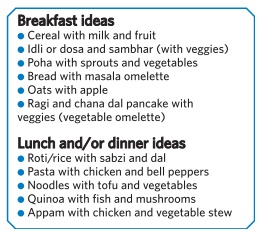
Foods have personalities too, just like us. Take the case of caffeine, it revs up your engine and gets you all riled up! Water, on the other hand, gently lays down a blanket of calm inside your body. This summer, learn about the foods that should get a VIP access pass to your plate and those which should be struck off the list.
ON THE VIP LIST
Fresh fruit, fresh veggies, salads:
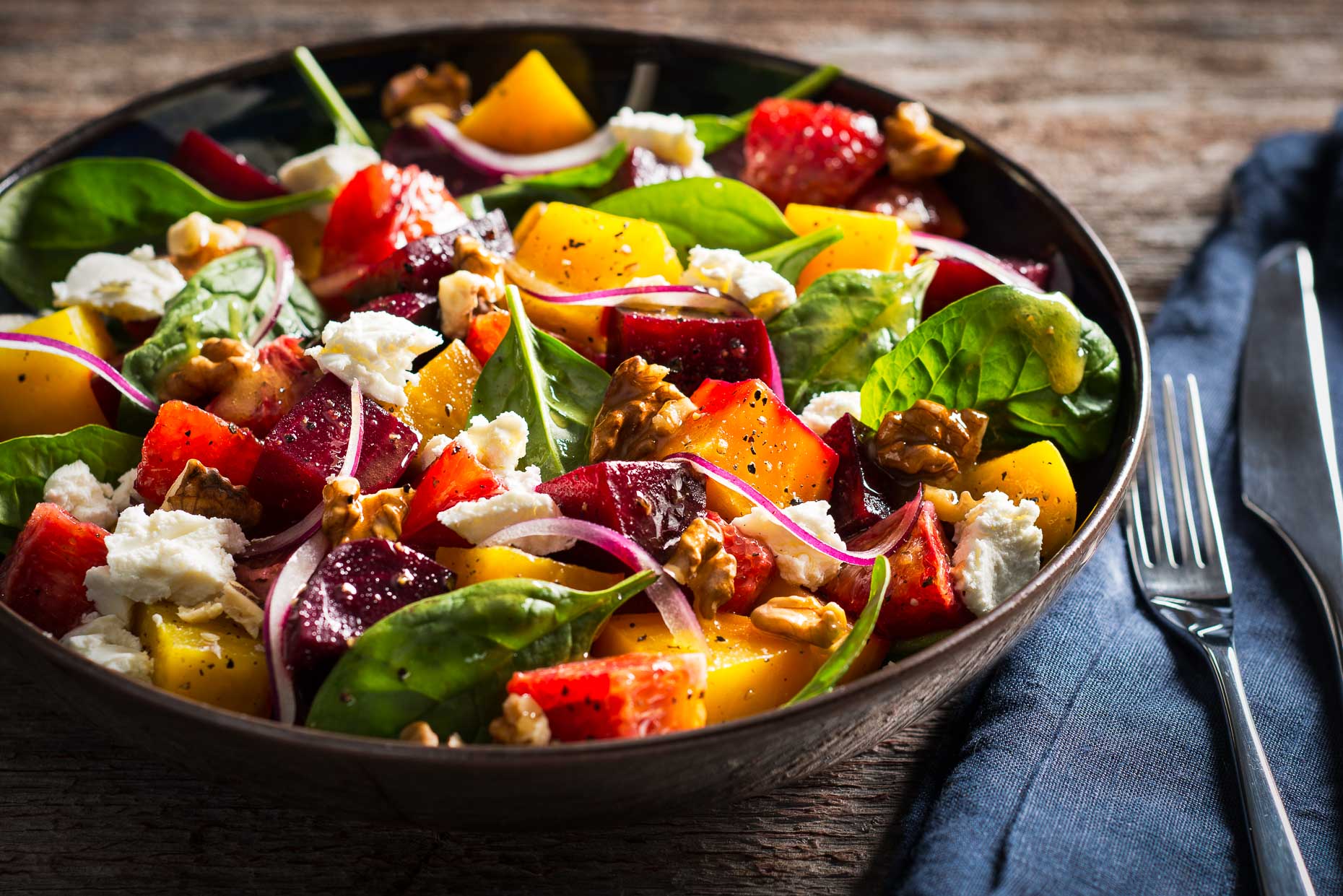
Summer heat could lead to dehydration, which, in turn, could lead to electrolyte loss. It makes you feel lethargic, nauseous, exhausted and may even cause diarrhoea and constipation. Raise your intake of fresh fruits and veggies in ways that are creative and tasty like finger foods.
Lush liquids and sorbets:
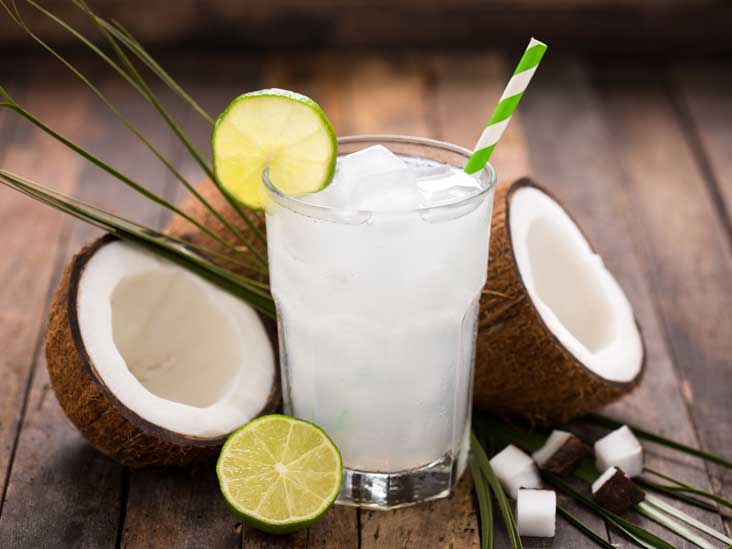
Have kokum water, coconut water, chaas, fruit slushes and frozen iced sorbets. These foods work well to restore electrolyte balance and also provide healthy and interesting ways to pack in nutrients.
Water, Infused water:
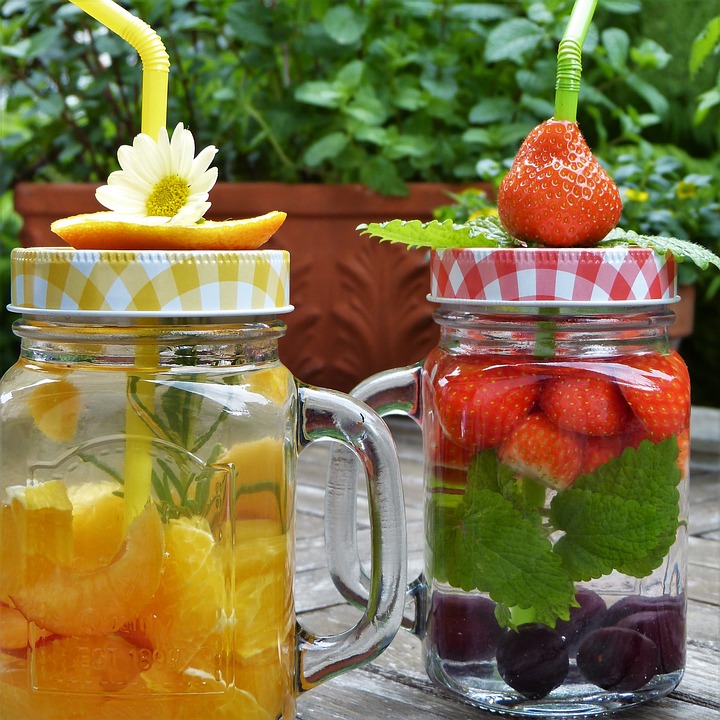
Apart from increasing your water consumption to about 10-12 glasses per day, why not try killing two birds with one glass by infusing your water? Take care of both dehydration and nutrition by adding a small piece of fresh fruit like kiwi or strawberry or even basil to your water container.
Sautéed greens:
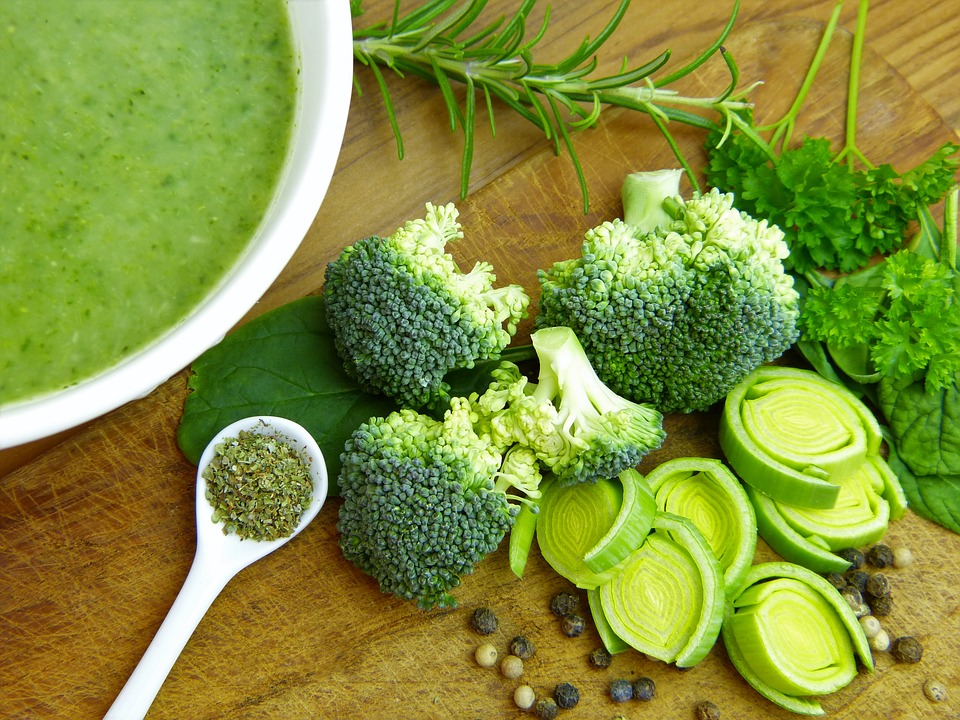 Give a nod to sautéed greens this season. These are light, can be made very appetising and always bring nice gifts with them like reduced cholesterol, cancer-fighting abilities, antiaging benefits, powerful vitamins and energy.
Give a nod to sautéed greens this season. These are light, can be made very appetising and always bring nice gifts with them like reduced cholesterol, cancer-fighting abilities, antiaging benefits, powerful vitamins and energy.
Cold soups:
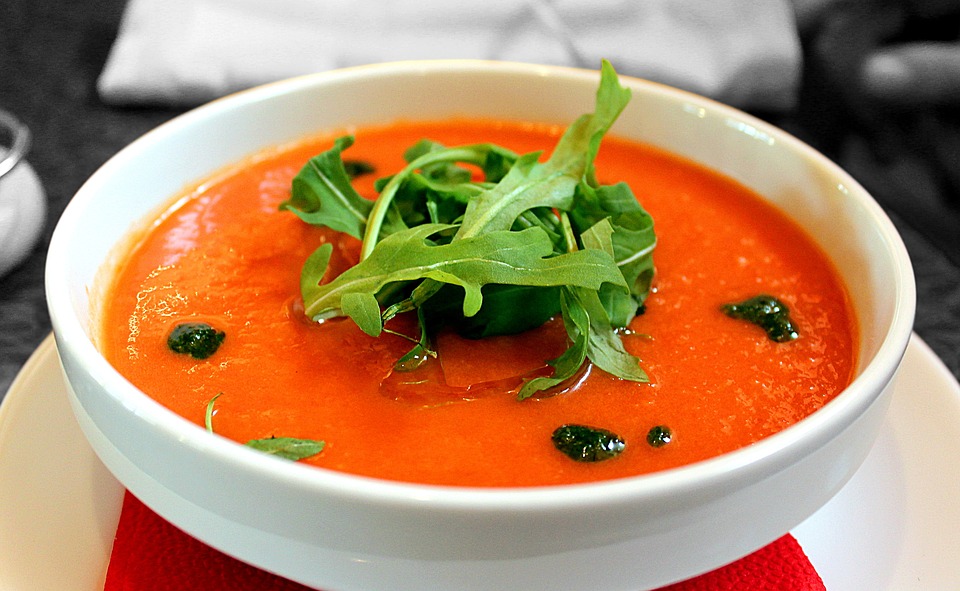
Team up fresh salads with the perfect escort: hearty cold soups that include gazpachos, cold cucumber soups, tomato soups for flavour and a feeling of fullness.
OFF THE LIST
Excess protein:
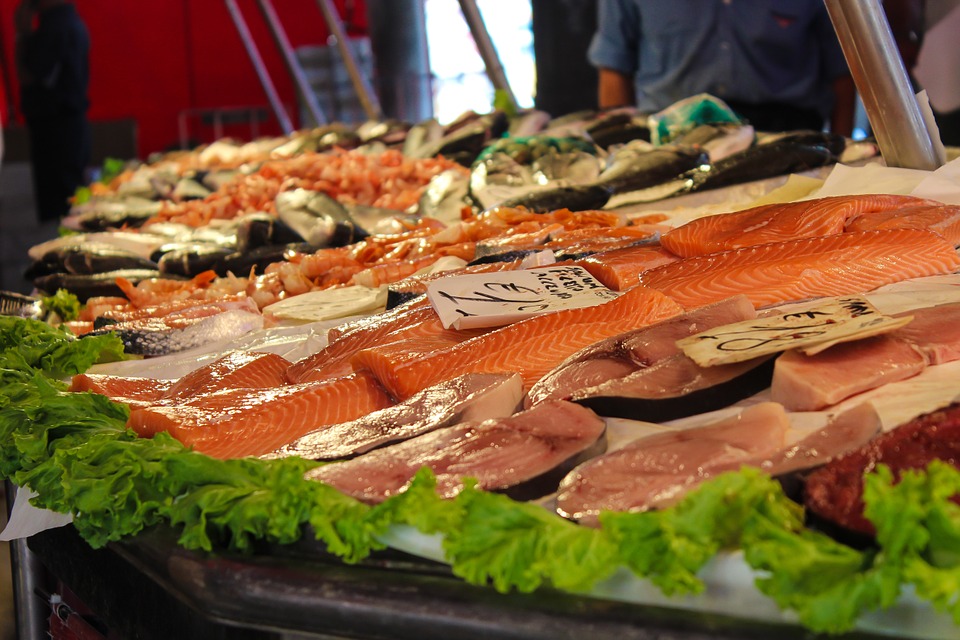 Proteins are harder to digest in general and coupled with heat and dehydration, they leave you feeling uncomfortable and nauseous. The recommended daily intake of protein is one gram per kilo of ideal body weight (the appropriate weight for your height). So, no matter what you currently weigh, if your ideal body weight is supposed to be 57-58 kg, your protein in take should not exceed 57-58 gm.
Proteins are harder to digest in general and coupled with heat and dehydration, they leave you feeling uncomfortable and nauseous. The recommended daily intake of protein is one gram per kilo of ideal body weight (the appropriate weight for your height). So, no matter what you currently weigh, if your ideal body weight is supposed to be 57-58 kg, your protein in take should not exceed 57-58 gm.
Alcohol:

Alcohol adds heat. It’s is a va sodilator, which means that more blood gushes through your system leaving you feeling hotter and sweatier. Alcohol is also dehydrating.
Oily food:
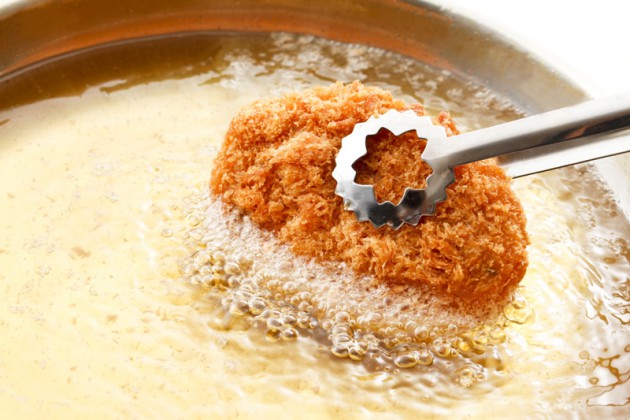
When the body is not hydrated, it can’t expel the byproducts of heavy, oily foods through the kidney, which is why urination is not as frequent when you are dehydrated. The oily food then reaches your skin, the second largest excretory organ in your body, which makes you sweat more, dehydrates you further, kick starting a vicious cycle. It’s your body, your health, your life. Only food that is good must make the cut.
Here you go – 5 unhealthy foods that need to kick the curb and be eliminated from your daily diet, RIGHT NOW –
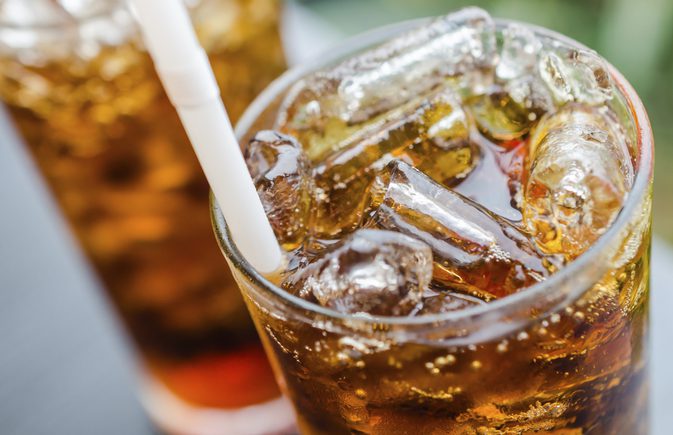
1. DIET SODA When it comes to the calorie count, the diet version may turn out to be a better option than drinking sugar loaded aerated drinks. But artificial sugars and caffeine isn’t something we must consume regularly or get addicted to just because it is zero in calories and does not hinder our weight loss efforts. It does a lot of harm to your body in several other ways.
Swap with: Plain soda Still keeping the carbonated fizz and the zero calorie lure alive, a can of plain soda deletes the negatives of caffeine and aspartame. You tives of caffeine and aspartam could add a bit of flavour to i by squeezing lime or adding some chopped fruits like berries, oranges, melons, mint or celery leaves.




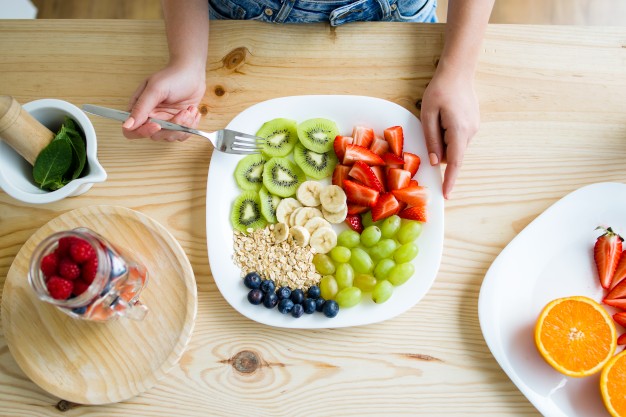
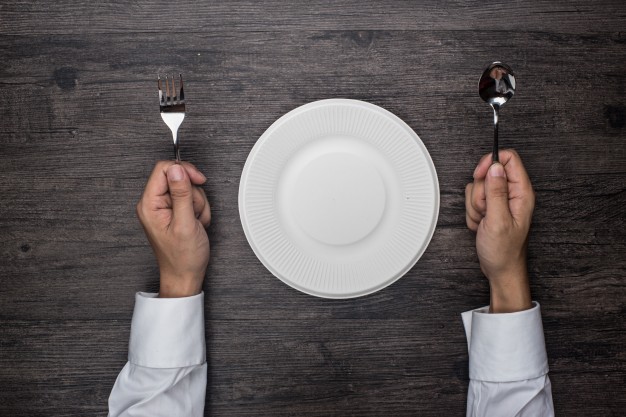


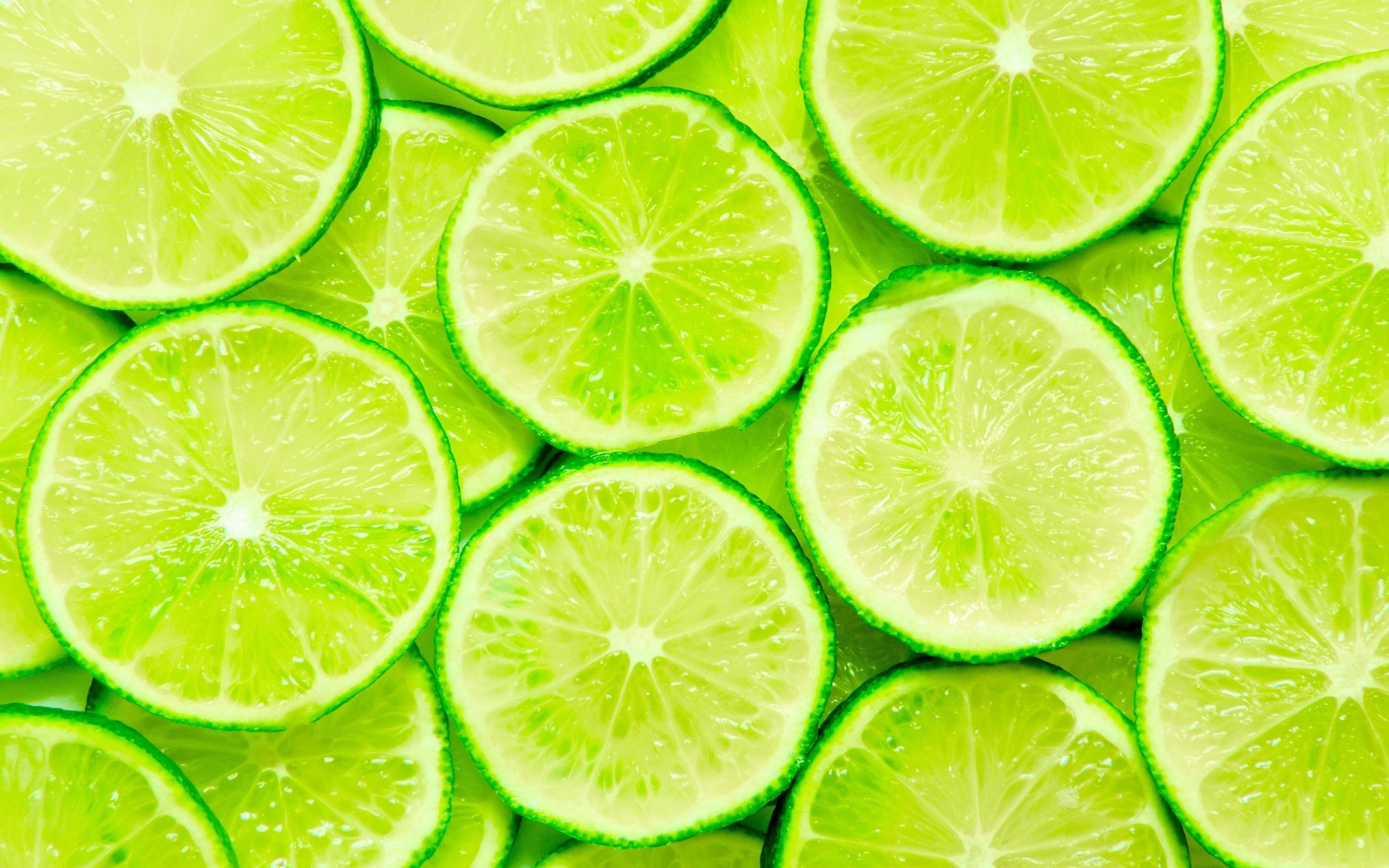
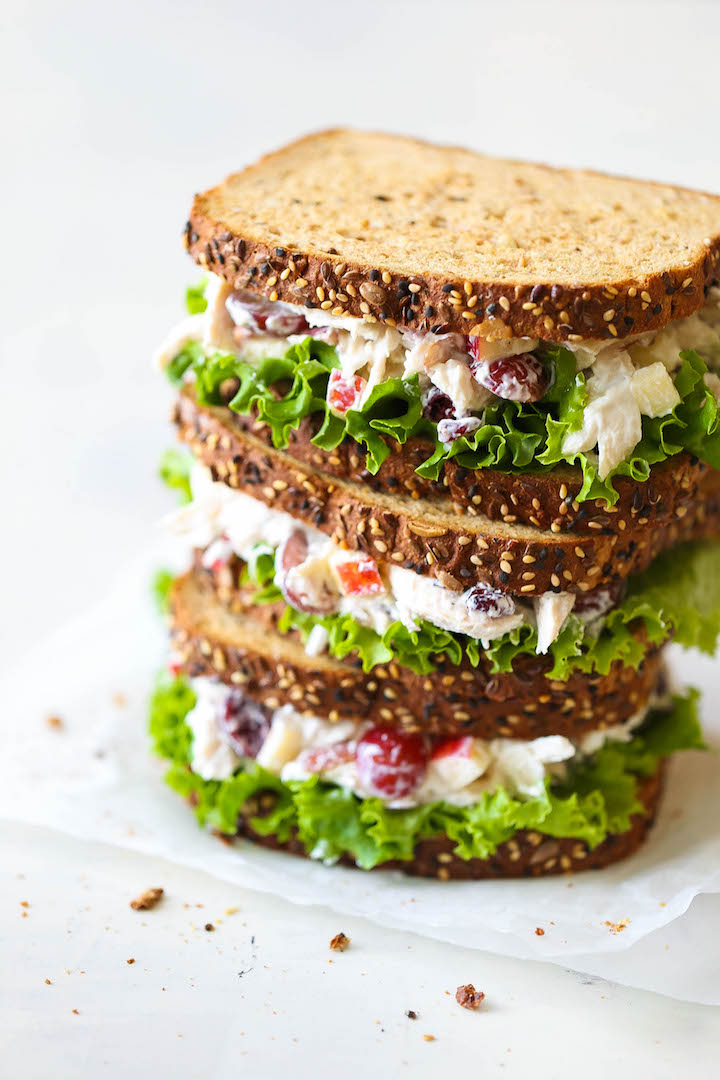
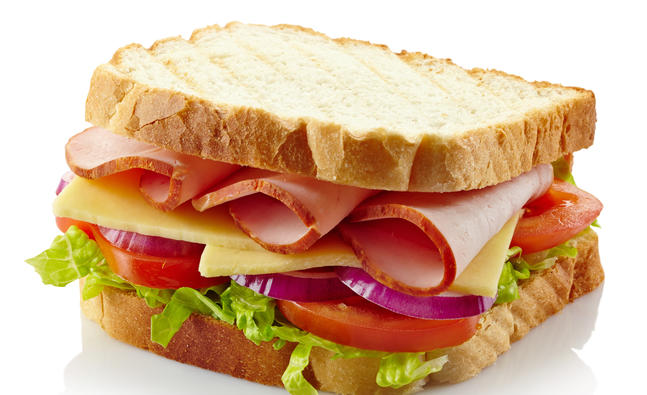
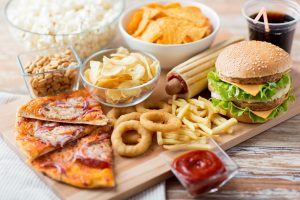
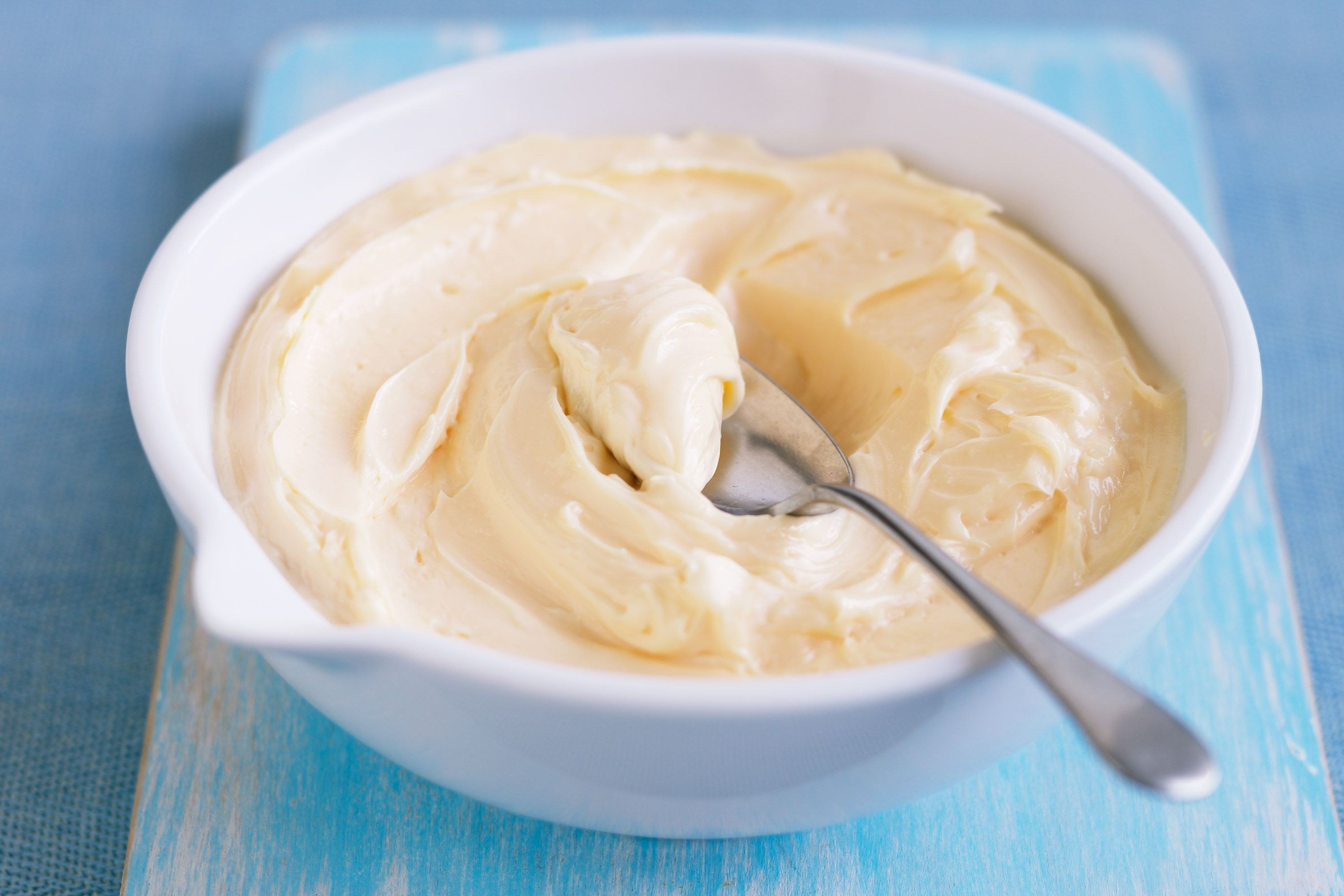 2. MAYONNAISE If you are happily throwing in mayonnaise into your salads and sandwiches thinking it brings in taste and variety, you may as well be clogging your arteries with sticky lard.
2. MAYONNAISE If you are happily throwing in mayonnaise into your salads and sandwiches thinking it brings in taste and variety, you may as well be clogging your arteries with sticky lard. 3. FLAVOURED YOGURT Something that is actually very healthy can be easily turned into an absolutely unhealthy food item simply by adding loads of sugar, cream and artificial flavours. Yes, I am talking about yogurt. Why turn this healthy probiotic snack (which it is originally famous for) into a dessert item? If you are using flavoured yogurt as an alternative to ice-creams and pastries, it is definitely a wiser option but if it’s stocked in the fridge as a healthy, low calorie, portable snack, get rid of it rightaway.
3. FLAVOURED YOGURT Something that is actually very healthy can be easily turned into an absolutely unhealthy food item simply by adding loads of sugar, cream and artificial flavours. Yes, I am talking about yogurt. Why turn this healthy probiotic snack (which it is originally famous for) into a dessert item? If you are using flavoured yogurt as an alternative to ice-creams and pastries, it is definitely a wiser option but if it’s stocked in the fridge as a healthy, low calorie, portable snack, get rid of it rightaway.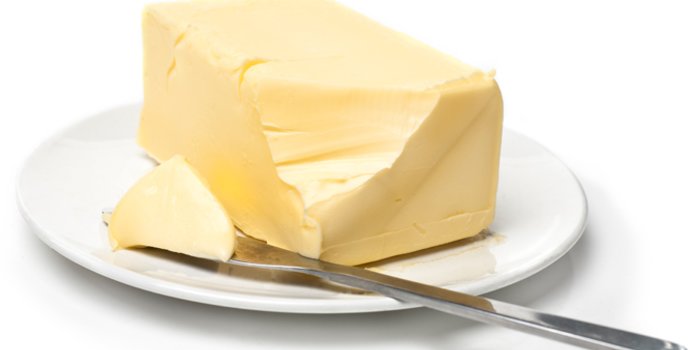 4. MARGARINE Marketed as a healthier option to butter, margarine is anything but that. It is loaded with partially hydrogenated fat which increases the LDL (bad) cholesterol and thus increases the risk of heart diseases and inflammation, a known trigger to premature aging.
4. MARGARINE Marketed as a healthier option to butter, margarine is anything but that. It is loaded with partially hydrogenated fat which increases the LDL (bad) cholesterol and thus increases the risk of heart diseases and inflammation, a known trigger to premature aging.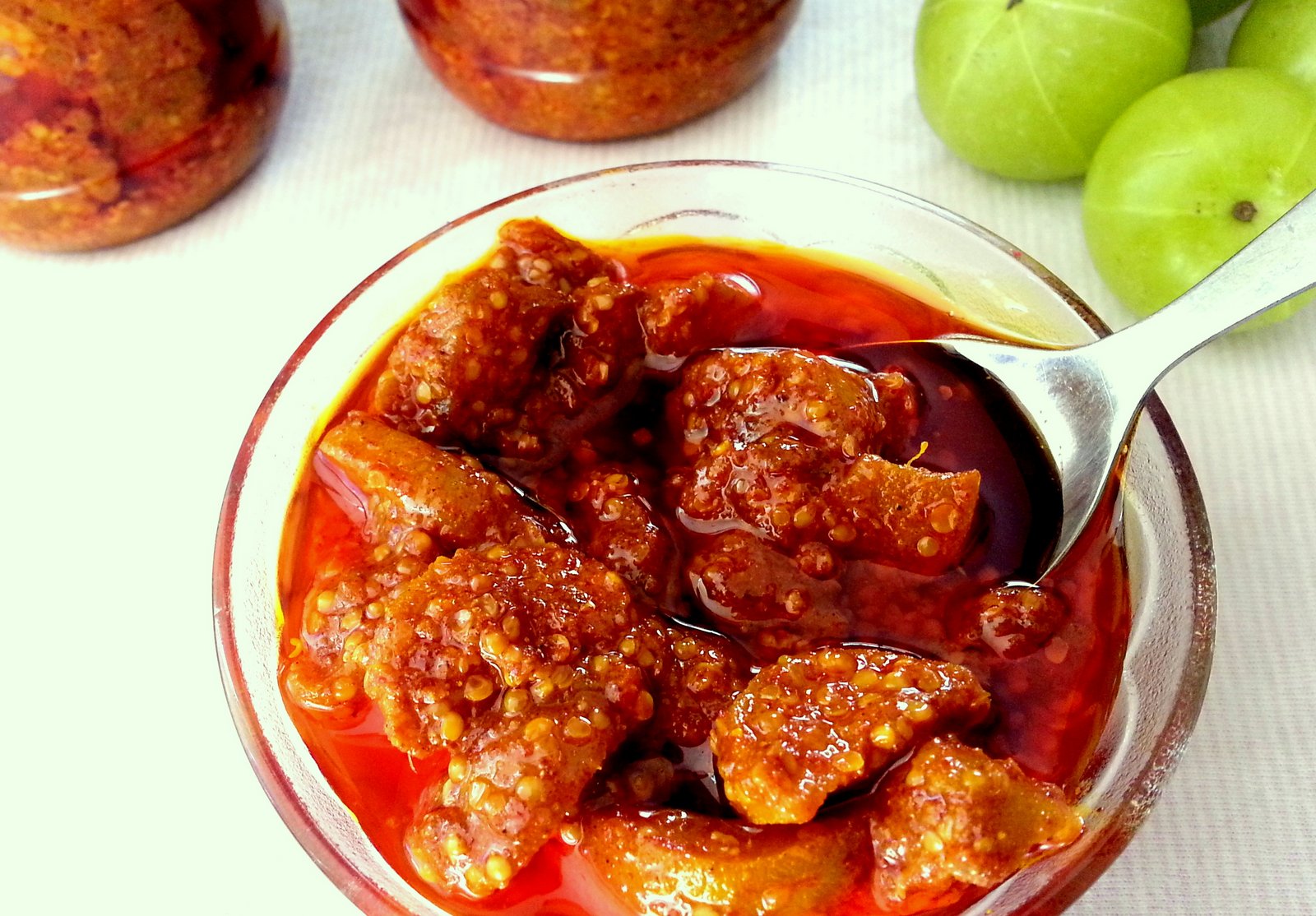 5. PICKLES They add a dash of spice and flavour to your daily meals, thus helping break monotony of everyday cooking styles. But remember, that along with its ichness in taste, pickles are a high source of oil and sodium. The additional oil (since cooked meals have already exhausted your daily oil quota) plays havoc with our lipid profile and ts a load on the heart, and the puts a load on the heart, and the excess sodium (since our meals already take care of our daily salt requirements) spoils the electrolyte balance and thus affects blood pressure.
5. PICKLES They add a dash of spice and flavour to your daily meals, thus helping break monotony of everyday cooking styles. But remember, that along with its ichness in taste, pickles are a high source of oil and sodium. The additional oil (since cooked meals have already exhausted your daily oil quota) plays havoc with our lipid profile and ts a load on the heart, and the puts a load on the heart, and the excess sodium (since our meals already take care of our daily salt requirements) spoils the electrolyte balance and thus affects blood pressure.